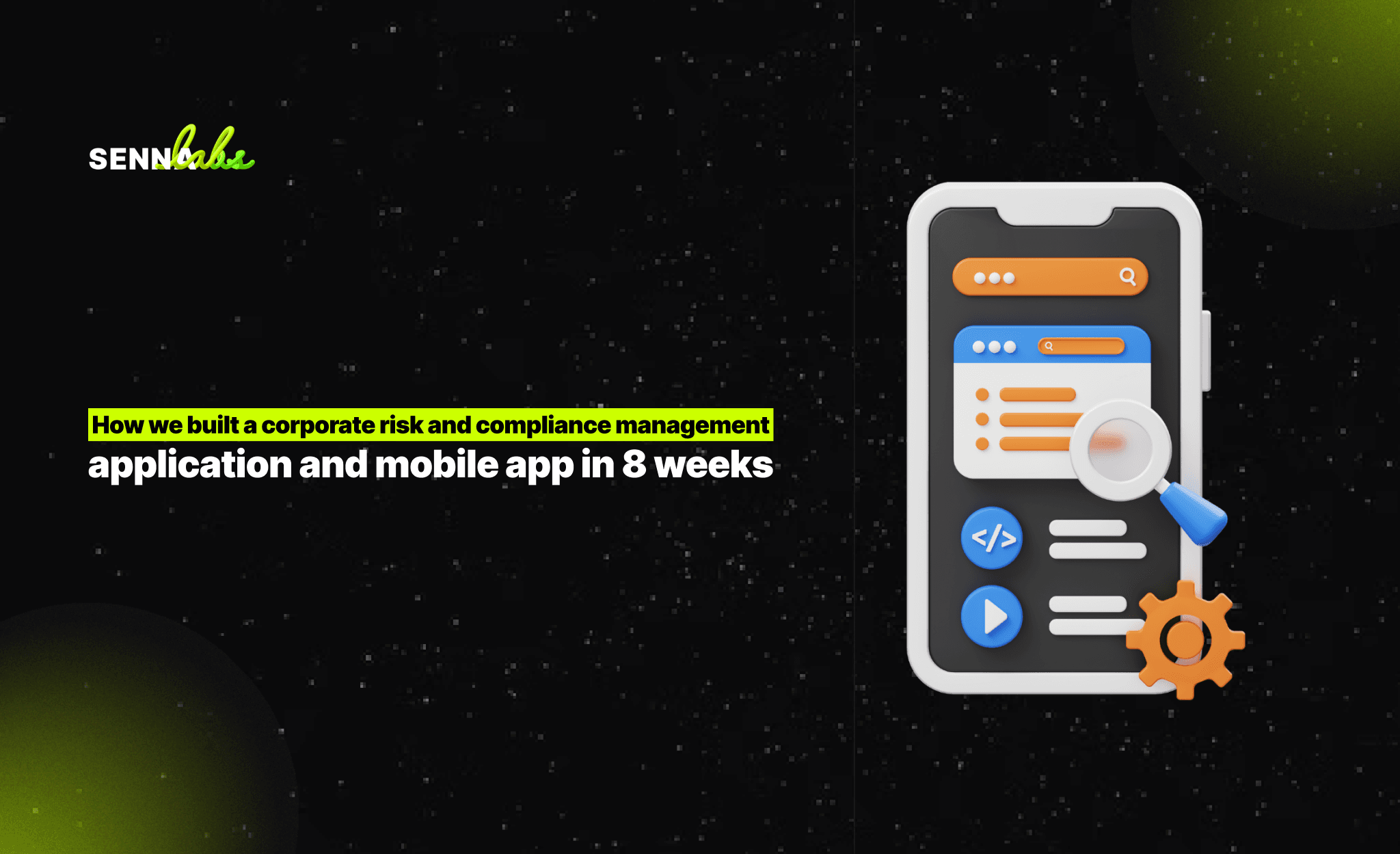How Custom Web Applications Empower Remote Workforces
Share

The rise of remote work has transformed the way businesses operate, forcing organizations to rethink how they manage teams, facilitate collaboration, and ensure productivity. In this era of decentralized workforces, businesses need reliable, flexible, and scalable tools to ensure that employees can work efficiently regardless of their location. While off-the-shelf software solutions can address some of these needs, custom web applications offer a more tailored approach that can be specifically designed to support the unique requirements of remote teams.
Custom web applications provide organizations with the ability to create solutions that integrate seamlessly with their existing workflows, offer specialized features, and scale according to business needs. These applications empower remote workforces by enabling real-time collaboration, streamlining communication, and enhancing productivity. In industries where teamwork and coordination are critical—such as consulting, technology, and professional services—custom solutions have proven to be indispensable in driving remote work success.

This article explores how custom web applications can be designed to support remote workforces, providing tools for improved collaboration, productivity, and communication. We’ll also examine a real-world use case where a global consulting firm developed a custom project management and collaboration web app that enabled remote teams to manage projects, share files, and communicate in real-time. The result was a 25% improvement in productivity and a significant reduction in turnaround time for client deliverables.
The Challenges of Managing Remote Workforces
Remote work offers a range of benefits, including greater flexibility, reduced operational costs, and access to a global talent pool. However, it also presents several challenges, particularly for businesses that are used to traditional, office-based work environments. Some of the key challenges include:
1. Collaboration Across Time Zones
Remote teams often span multiple time zones, making it difficult to schedule meetings and coordinate work in real-time. Without the right tools, delays in communication can lead to misalignment, project bottlenecks, and inefficiencies.
2. Maintaining Productivity
Managing productivity can be more challenging when employees are working remotely. Without direct oversight, managers need tools that help track progress, monitor deadlines, and ensure that work is being completed efficiently.
3. Secure File Sharing and Data Management
Remote teams need to share files and data securely without risking breaches or unauthorized access. Many off-the-shelf solutions don’t offer the level of customization or security required by industries handling sensitive client information, such as legal, finance, and healthcare.
4. Effective Communication
In a remote work environment, communication must be seamless to keep teams connected and on the same page. Without tools that enable real-time communication, team members may struggle to collaborate effectively, leading to confusion and delays.
5. Integrating with Existing Workflows
Businesses that already have established workflows, processes, and systems may struggle to find off-the-shelf solutions that integrate seamlessly. Custom web applications, on the other hand, can be designed to fit into existing ecosystems without disrupting current processes.
How Custom Web Applications Address Remote Workforce Challenges
Custom web applications offer a tailored approach to addressing the unique challenges that remote workforces face. Unlike generic, off-the-shelf solutions, custom applications can be built to meet the specific needs of a business and its remote teams. Here’s how custom web applications can empower remote workforces:
1. Real-Time Collaboration
Custom web applications can be designed to support real-time collaboration across distributed teams. Features such as shared workspaces, real-time document editing, and integrated task management allow team members to work together seamlessly, regardless of their location.
In the case of the global consulting firm, the custom application they developed allowed team members in different time zones to collaborate on projects in real-time. The application included a project dashboard that provided visibility into tasks, deadlines, and project progress, enabling team members to stay aligned and make informed decisions without needing to wait for scheduled meetings.
2. Enhanced Productivity Tools
Custom web applications provide remote teams with tools designed specifically to boost productivity. These can include features such as:
-
Task management and tracking: Custom apps can offer detailed task management systems that allow teams to assign tasks, set priorities, and track progress.
-
Automation: Repetitive tasks can be automated to save time, such as sending notifications when deadlines are approaching or generating reports based on project data.
-
Resource allocation: Teams can manage resources more efficiently by tracking employee availability, project workloads, and time spent on tasks.
For the consulting firm, the custom web app included task assignment and tracking features, which allowed managers to allocate resources more effectively. This streamlined approach improved project turnaround times and helped the firm increase productivity by 25%.
3. Secure File Sharing and Data Protection
Data security is a significant concern for remote teams, particularly those that handle sensitive client or organizational data. Custom web applications can be built with robust security features to ensure that files are shared securely and that only authorized personnel have access to sensitive information.
The consulting firm’s custom app included a secure file-sharing feature that allowed team members to upload, share, and store client documents in a secure environment. The application used encryption for data in transit and at rest, ensuring compliance with industry regulations and minimizing the risk of data breaches.
4. Seamless Communication Tools
Custom web applications can integrate a wide range of communication tools, from instant messaging to video conferencing, to ensure that remote teams can stay connected. These tools allow for real-time communication and collaboration, reducing the friction that can occur when working remotely.
For remote teams, having integrated communication tools within the same platform as project management and file-sharing features helps reduce the need to switch between multiple applications, improving efficiency and focus. In the case of the consulting firm, their custom web app included an integrated messaging and video conferencing tool, which enabled teams to communicate in real-time without needing to rely on external platforms. This feature helped reduce delays in decision-making and kept team members engaged.
5. Customizable to Fit Existing Workflows
One of the biggest advantages of custom web applications is that they can be built to integrate with a business’s existing workflows and systems. This ensures that the new application doesn’t disrupt current processes but instead enhances them.
The consulting firm’s custom web app was designed to integrate with their existing CRM and financial management systems. This allowed the firm to seamlessly transition between project management, client relationship management, and financial reporting without needing to manually transfer data between systems. The ability to customize the application to fit their unique processes helped the firm improve efficiency and reduce the risk of errors.
6. Scalability
As businesses grow, their needs change. Custom web applications are inherently scalable, meaning they can evolve alongside the organization. Whether it’s adding new features, supporting more users, or integrating with new technologies, a custom app can be expanded to accommodate future needs.
The consulting firm’s web application was designed with scalability in mind. As the firm added new clients and expanded its team, the application was able to support an increasing number of users without sacrificing performance. This scalability ensured that the firm could continue to grow without needing to invest in a completely new system.
Use Case: A Global Consulting Firm Empowers Its Remote Workforce
To illustrate the impact of custom web applications on remote workforces, let’s explore a real-world example involving a global consulting firm. This firm faced the challenge of managing projects across multiple countries, with team members working remotely from different time zones. Their existing project management and collaboration tools were disjointed and did not provide the flexibility or real-time capabilities needed to support their growing remote workforce.
The Challenge
The firm needed a solution that could:
-
Enable real-time collaboration between remote teams working on client projects.
-
Provide a secure environment for sharing sensitive client documents.
-
Integrate with their existing CRM and financial systems.
-
Scale as the firm grew and onboarded new employees and clients.
Their existing tools were fragmented, with teams using different applications for project management, communication, and file sharing. This lack of integration caused delays, miscommunication, and inefficiencies in managing client deliverables.
The Solution: A Custom Project Management and Collaboration Web App
To address these challenges, the firm developed a custom web application that combined project management, file sharing, and communication features into a single platform. Here’s how the app was designed to meet their specific needs:
-
Project Management Dashboard: The app featured a centralized project management dashboard that allowed team members to view project tasks, deadlines, and progress in real-time. Managers could assign tasks, track completion, and adjust timelines as needed.
-
Real-Time Collaboration: The platform enabled real-time document collaboration, allowing team members to work together on client deliverables without needing to email documents back and forth. The app included a version control system to ensure that team members were always working on the most up-to-date files.
-
Secure File Sharing: Given the sensitive nature of their client work, the app included encrypted file sharing and storage features. Team members could securely upload and share files with colleagues, with role-based access control ensuring that only authorized personnel could view certain documents.
-
Integrated Communication Tools: The application included an integrated messaging system and video conferencing tool, allowing teams to communicate and hold virtual meetings directly within the platform. This reduced the need to switch between different communication apps and improved team cohesion.
-
Custom Integration: The app was designed to integrate seamlessly with the firm’s existing CRM and financial management systems, allowing team members to access client information and generate reports without needing to leave the platform.
The Results
By developing this custom web application, the consulting firm achieved significant improvements in productivity and collaboration. Key outcomes included:
-
25% improvement in productivity: The ability to manage projects, share files, and communicate in real-time streamlined workflows and reduced delays in decision-making.
-
Reduced turnaround time for client deliverables: With all project management and communication tools integrated into a single platform, teams were able to complete client projects more efficiently, reducing the time needed to deliver high-quality work.
-
Scalability: As the firm grew, the custom web app scaled to support additional team members and clients, allowing the firm to expand without outgrowing its project management tools.
Conclusion
In today’s remote work environment, businesses must invest in tools that enable seamless collaboration, secure file sharing, and effective communication. Custom web applications offer a tailored solution that addresses the unique challenges faced by remote workforces, providing features that boost productivity, enhance security, and integrate with existing workflows.
As demonstrated by the global consulting firm’s success, custom web applications can empower remote teams to work more efficiently, collaborate in real-time, and deliver better results for clients. By designing solutions that meet the specific needs of their workforce, businesses can ensure long-term success in a remote-first world. For organizations looking to support their remote teams, investing in custom web applications is a smart strategy that delivers tangible results.

Share

Keep me postedto follow product news, latest in technology, solutions, and updates
Related articles
Explore all


